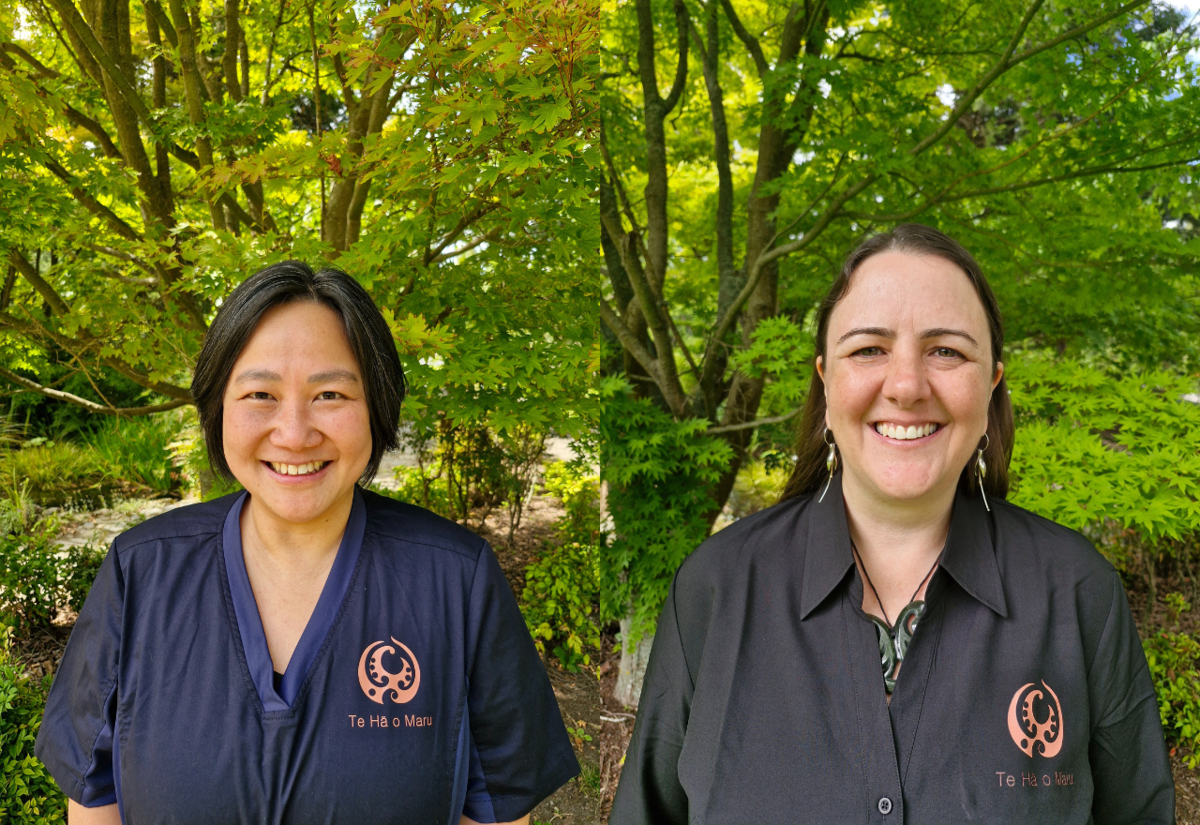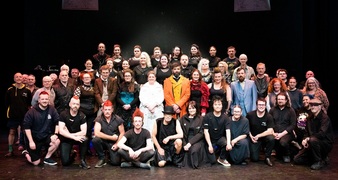Runaka-owned GP clinic for whole community
Ashley Smyth
03 March 2025, 1:36 AM
 Te Hā o Maru General Practice doctors Chuan Lai (left) and Lily Fraser. Photos: Supplied
Te Hā o Maru General Practice doctors Chuan Lai (left) and Lily Fraser. Photos: SuppliedA new medical centre opening in Ōamaru will hopefully help remedy people's problems finding a GP.
Te Hā o Maru General Practice has been running for about a month now, with doctors Lily Fraser and Chuan Lai sharing the five days it is open, and also offering virtual consults.
The clinic is at 23 Coquet Street, upstairs in the Work and Income New Zealand building. It is part of Te Hā o Maru’s Health and Social Services, which is wholly owned by Te Rūnaka o Moeraki.
“In our hauora, which is our health service, we do have community nursing already. So we've had that for almost a year now,” Lily says.
“Our workers are based in this building and then go out and see people in the community. And we've actually just started a nurse drop-in clinic on Thursdays. So that's for people that just want to talk to a nurse and see if they might be able to get things sorted quickly.”
Since the GP clinic has opened, enrolments have been slow and steady.
“Given that we are a very small team right now, I think that's appropriate,” Lily says.
It's been a big task to start everything up from scratch.
Months have been spent getting everything ready, and there is still more that needs to happen.
Lily has been a GP for 16 years and is based in Dunedin. She used to be the clinical director at Te Kaika Wellbeing Hub in Dunedin, and is still one of three clinical directors at Turuki Health Care in Auckland, where she has worked since 2011.
She also has a new job teaching part-time at the Otago University medical school.
Chuan is Chinese-Malay. She came to New Zealand for her clinical placements, and settled here.
She is also based in Dunedin, and the two have worked together before, Lily says.
“She's just a really, vibrant, caring, hard worker, and I really value the way that she works with whānau. I think she provides an excellent GP service.”
Chuan is particularly passionate about older people's health, and supporting people in rest homes, while Lily’s interests lie with lifestyle medicine.
“Particularly, nutrition is my big passion. And then I just really love GP work.
“I love that we support people from birth to death, really, and there's never a dull day. You get to talk to so many amazing people and share pretty intimate experiences in their lives and struggles that they might be facing.”
While Lily and Chuan provide the GP component to the Te Hā o Maru health services, the community offering is “much broader” than that, Lily says.
“We definitely want to provide a wide range of health services, including Māori practitioners.”
Rokoā is traditional Māori medicine which encompasses a range of modalities. It is the healing method Māori used pre-Pakeha arrival and has been sustained over the past 200 years.
“So it can be like different types of massage (mirimiri), it can also be using different plants to drink or apply to the body. There’s definitely a large wairua or spiritual component to that type of work.”
It is more visible now, and has even been recognised by ACC as a treatment option, Lily says.
“So I think definitely we hear stories and see research that our Māori whānau particularly haven't always had a great experience in the health system, and so where people have had the knowledge or access, sometimes there is better trust in Rokoā Māori.”
For some people, it can be all they want or need, and for others it might go hand in hand with more modern medicine, she says.
“It's definitely not an and/or . . . and we're really respectful of people's choices.
“You know, the people or the whānau that choose to only use that, we (as GPs) don't see them, right? It's their choice, but I think it's really important that we make it available for whānau.”
Rokoā wānaka is offered once a month for koha, either in Ōamaru at Te Whare Koa Community Marae or at Te Runaka o Moeraki.
So far Lily is enjoying her role at the new GP clinic.
“Te Runaka o Moeraki, the whānau there, have provided, I think, just a really great foundation for the service to grow.
“And the work that the other workers in Te Hā o Maru have been doing in the community has been really well received.”
Te Hā o Maru was incorporated as a charitable company in October 2022.
It has about 20 employees, and offers social and education services within the takiwa (district), some of which have been running for more than a year.
It has established contracts with different Government organisations, such as Te Whatu Ora and the Ministry of Education, and there is also a relationship with Oranga Tamariki.
“Definitely Moeraki, you know, they govern us and provide us with that direction. But we still need to have contracts to create a service,” Lily says.
Lily, who whakapapas to Puketaraki Marae in Karitane, says the motivation behind running the health and education services is to offer care to the whole community, not only Māori.
“I think, as tangata whenua, definitely, we see our role as welcoming everybody and caring for them with open arms.
“The focus, I think, has been more on our own whānau for quite a long time, and I think there's definitely a desire to extend that manaakitanga - take the care out further into the community.
“And so these are definitely services that Te Ha o Maru provides for everybody, you know, in a specifically Maori way.”
There is an expectation the GP team and services will grow to accommodate need.
“We can do all the fundamental GP things, but health is definitely more than a 15-minute consultation, so we're really looking forward to providing support in different ways, whether that's through ourselves or through other people that come on board.”
Lily was born in Dunedin, but grew up in Auckland, and saw this job opportunity as a way to return to her whakapapa.
“So it feels, you know, even though (Moeraki) is not my marae, it feels like I'm helping out our whanau up the road, which was really important for me coming home, is that I really wanted to do mahi for the iwi.”
The Whakatauāki on Te Hā o Maru’s website homepage reads: “Inā tae he manuhiri ki tō whare, watua he kōrero, whākana ō manuhiri.”
This translates to: “When a guest is in our house, present them with a speech of welcome. Let your guest want for nothing.”
Lily says at Te Hā o Maru clinic they refer to people not as patients, but “as our manuhiri - which is a guest in our home”.
The second whakatauāki says: “Tohutohu i a tātou tamariki kaua e wareware i to rātou Māoritaka.
Haere i ruka i te tika i te pono pēra i o tātou kaumatua.”
“This is about raising our own children to not forget their Maoritanga - and that they are raised well, like the way our ancestors were - so we’re not forgetting our traditions and values and ways of living.”
Both whakatauāki are from Hastings Tipa (Ūpoko Rūnanga and rakatira nō Moeraki) recorded in 1936, and they are what Te Hā o Maru is founded on, Lily says.
For people wanting to register with the Te Hā o Maru GP Clinic, forms can be found online, or they can do it in person at the clinic.




